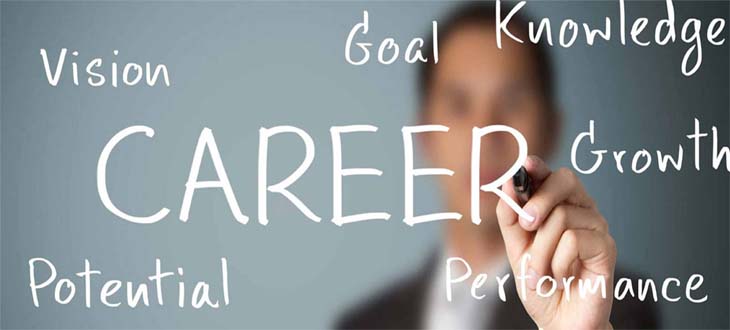
Career
“Your career is like a garden. It can hold an assortment of life’s energy that yields a bounty
for you. You do not need to grow just one thing in your garden. You do not need to do just
one thing in your career” – Jennifer Ritchie Payette
Nowadays, in developing global economy, careers as well as the nature of work are
undergoing a considerable transformation. Some of the factors that have led in a new era of
career development are technological advancements, societal shifts, and the impacts of
Covid-19 pandemic Consequently, the normal career paths are becoming outdated, and new
trends are emerging at a large scale, resulting to the need for greater adaptability, and a
focus of life-long learning. In this essay, we will discuss several major trends that fashion the
modern career development.
Remote Work
First of all, the most significant change in the traditional job market is the increase of
remote work. Employers in the world compelled to adopt remote work as a necessity in
their organizations due to Covid-19 pandemic. But this experience of Covid-19 disclosed
many advantages, such as a greater flexibility and an increase in productivity for many
employees. As a result, remote work has come out to be very beneficial for both employers
and employees.
Moreover, organizations are increasingly offering remote work to their employees.
Therefore, employees can make a choice between working in an office or from home. As a
result, this new trend in career development satisfies employees and helps them to enhance
their performance. In addition, companies are being encouraged to build a strong company
culture that enable them to succeed in virtual environments. In doing so, employees
collaborate with technologies and evolve in the engagement towards their organizations.
Importance on Skill Development
Nowadays, with the rapid evolution of technology and job requirements, there is a rise on
lifelong learning and skill development due to the fact that normal education paths may not
help individuals with the specific skills required in today’s market. Therefore, professionals
are looking for continuous learning opportunities through online courses and certifications.
Besides, learning platforms such as Coursera, LinkedIn Learning, Udacity are gaining
popularity as it allows individuals to gain skill in a flexible manner. Organizations are also
investing in employee training and development programs as they are aware that a skilled
employee can adapt to changing demands and contribute to innovation. Therefore, the
target is to change from degrees to skills development resulting in cutting the lines between
normal education and online self-learning
Freelancing and the Gig Economy
Another important trend in career development is the increase of freelancing and gig
economy. In today’s market, freelancing and contract work have become very popular due
to the interest of individuals for work autonomy and flexibility. This change is in line with a
growing preference among youngsters for experiential work over normal job security.
Furthermore, many professionals and individuals are moving towards freelance roles.
However, this trend has also its disadvantages such as low income and no benefits. In this
regard, industry stakeholders are standing up for better protection of the freelancers by
having discussions around basic income and manageable benefits.
Automation and Technology
Another prominent trend that is transforming the career landscape is the integration of
automation and technology. The job roles are changing to machine learning and automation
and artificial intelligence (AI) which is taking the main stage in several organizations and
industries. Some jobs may become outdated due to these advancements, but new roles are
emerging that require creativity and emotional intelligence.
In addition, professionals must adapt to this changing environment. They can do so by
adopting new tools, and acquiring technology skills. Developments in industries, such as
finance, healthcare, and manufacturing, are leading to the creation of new and unique job
titles and roles, that require experience in technology with domain knowledge. As a result,
this trend accentuates the importance of adaptability and a proactive approach to career
development.
Well-Being Focus and Mental Health
In recent years, the emphasis on well-being and mental health in the work place has gained
significant drive. Companies and organization recognize the impact of mental health, and
how it affects productivity and overall job satisfaction. Consecutively, this awareness has led
employers to implement wellness programs, mental health resources, and supportive
workplace environments.
Moreover, employers are engaging on creating work cultures that promote empathy,
flexibility, and well-being. These initiatives include mental health days, Employee Assistance
Programs (EAPs), and wellness challenges. Due to the fact that mental health becomes a
priority, organization that prioritize their employees’ mental and emotional well-being will
most likely experience a high level of engagement and retention.
Sustainability and Corporate Social Responsibility (CSR)
In this new era, the relationship between careers and sustainability has gained prestige
especially among youngsters. Job seekers are drawn to companies that demonstrate a
commitment to sustainability and corporate and social responsibility (CSR). Consequently,
organizations are taking steps to adjust their practices with social and environmental values
which directly affects employees and career opportunities.
Additionally, from green technology positions to roles in sustainable supply chain
management, the job market is growing in order to include careers related to sustainability.
As such, professionals are looking for ways to make a positive impact through their work,
and companies that are in favour for sustainability will definitely attract new talent and
build strong reputations in the community.
Conclusion
To summarize, the modern career development is characterized by a dynamic key of trends
driven by advancements in technology, societal shifts, and evolving employee expectations.
At the same time that remote work, an emphasis on skill development, and the gig economy
shape the future, both organizations and individuals must adapt to this changing
environment. Building diverse and inclusive workplaces, emphasizing on well-being and
mental health, and committing to sustainability are crucial components to obtain success in
current and future career trajectories.
Ultimately, in navigating this new era, professionals and individuals must embrace lifelong
learning, resilience, and adaptability. The jobs of the future will require individuals to
continuously innovate and make progress. This will lead to a more capable and diverse
workforce prepared to face the challenges of tomorrow. As we look ahead, embracing and
understanding these trends will be essential to secure accomplishing and impactful careers.
Izabela Polak did say, “Embrace every career development opportunity. Every day is
different and you’re making your own history”.


